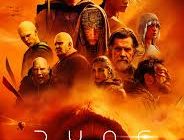The Article below was published in Vol. 135, Issue 3 of the Lake Forest College Stentor on November 8, 2019
By Leah Moss ‘20
A&E Editor
Set in 1972, Girls Like Us tells the story of four teenage girls, all of whom are either directly or indirectly dealing with an unplanned pregnancy. The girls come from vastly different backgrounds, but their circumstances cause their paths to cross. Told from a third person point of view, we’re given the stories of sisters Ola and Izella, who search for a way to end Ola’s pregnancy; Mississippi, a girl who’s too young to fully understand her situation; and Sue, the daughter of a pro-life senator.
Right from the start of the novel, you’re thrust into the world due to the stylistic writing and authentic character voices. I was originally intimidated by this and struggled to relate to the characters with a very different lifestyle than me, but as I continued to read, I fell in love with the characters. Mississippi, or “Sippi” as she is known, was probably my favorite, as she was a sweet character who definitely went through something she didn’t deserve. All of the girls were relatable in their own ways, even Ola and Izella’s desperate, secretive actions. Even in the more dry third person point of view, I could understand these characters and empathize with them. The novel shows off the expectations and harsh realities of the time period, which both contrast and overlap with modern society.
While this book is a “young adult” book, it didn’t really feel like a typical “young adult” story. Maybe it was the writing style, but in some ways, it reminded me more of literary fiction pieces along the lines of Their Eyes Were Watching God or Beloved (albeit far less stylistic). This isn’t a bad thing at all, and I think that the tone might actually help it stick more as an important literary piece that could be included in classroom discussions.
I think that my main issue was with the ending. I won’t spoil it, but it’s set in modern times, and while it does do well to connect the issues presented earlier in the book to the present, I felt that it wasn’t necessary and turned this beautifully written piece into more of a political message. (Don’t get me wrong, the politics were there all along, but the final chapter felt much more direct and forced.) I wish that the ending had been left more bittersweet, as it would have fit the tone better.
All in all, I would definitely recommend this book! People with interest in realistic, historical fiction and interest in abortion rights will enjoy this novel. I would give it 4/5 stars for being a bit dry at times and for the ending, but in general, I did enjoy it enough to finish it in less than a day! If you do decide to read this, just be cautious of some of the more difficult themes in the novel.
Leah Moss can be reached at [email protected].




